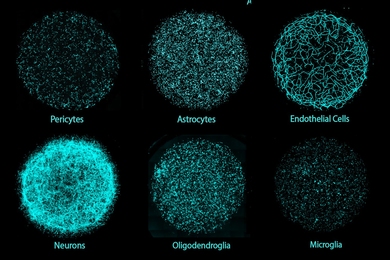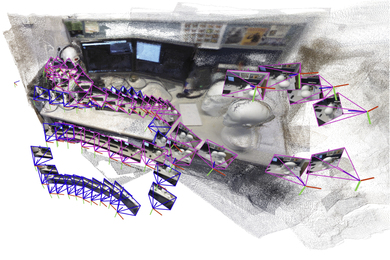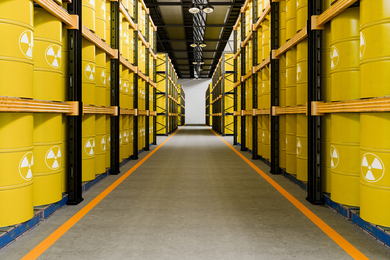With sights set on global greenhouse gas reduction, Tokyo’s IHI Corporation has joined the MIT Energy Initiative (MITEI). IHI, a global engineering, construction, and manufacturing company, recently signed a three-year membership agreement with MITEI’s Low-Carbon Energy Center for Carbon Capture, Utilization, and Storage (CCUS).
The center is one of eight Low-Carbon Energy Centers that MITEI has established as part of the Institute’s Plan for Action on Climate Change, which calls for strategic engagement with industry to solve the pressing challenges of decarbonizing the energy sector with advanced technologies. The centers build on MITEI’s existing work with industry members, government, and foundations.
“It is a source of great pleasure for IHI to be collaborating with the MIT Energy Initiative,” says Kouichi Murakami, IHI’s managing executive officer. “The rapid change in the global energy business, as well as the immense need for low-carbon energy, make large-scale innovation necessary. IHI is looking forward to solving energy challenges in concert with the great minds at MIT.”
IHI’s membership in the CCUS center stems from the company’s commitment to developing technologies to reduce global greenhouse gas emissions. The company is also interested in research projects focusing on low-carbon energy technologies, as well as on the future of the electric utility.
“Carbon capture, utilization, and storage represent an important tool in our arsenal for combatting climate change as part of the transition to a low-carbon future, given the dominant role of hydrocarbons in today’s power generation systems,” says MITEI Director Robert C. Armstrong. “IHI’s support of MIT research will help advance energy technology innovation in this critical area, as well as deployment at critical commercial scales.”
MITEI’s CCUS center draws upon a wide range of expertise, from chemistry to biology to engineering, to scale up affordable carbon capture, utilization, and storage technologies. CCUS encompasses an array of technologies that seek to reduce carbon dioxide emissions into the atmosphere by capturing it from sources such as thermal power plants and converting it into valuable products, or compressing and storing it indefinitely in the Earth’s crust. Faculty from various MIT departments are conducting research that includes new approaches to the efficient capture of carbon dioxide from a wide range of sources in the power and manufacturing industries and in the transport sector; the conversion of carbon dioxide into fuels and specialty and commodity chemicals using molecular-level engineering; and the prevention of seismicity and fault leakage during geologic carbon dioxide storage.
In addition to funding research, IHI’s membership will support MIT’s technoeconomic assessment program, which analyzes the technical and economic potential of various CCUS technologies with a particular focus on scalability and system integration. The program, led by MITEI Director of Research Francis O’Sullivan, also explores carbon mitigation scenarios, consolidating policy perspectives with technological viewpoints. The current focus is on helping chart a CCUS development program that will help make the technology more cost-effective, and support its more rapid scaling and deployment.
“As the Asia-Pacific region has experienced substantial economic growth, there has been a corresponding rise in carbon dioxide emissions — which is why it is so valuable to have companies like IHI that are committed to greenhouse gas emissions reductions,” says Wendy Duan, manager of the Asia-Pacific Energy Partnership Program at MITEI. “We are very pleased to welcome IHI as a MITEI member and look forward to working with them.”
The center is led by MIT faculty co-directors Bradford Hager, the Cecil and Ida Green Professor of Earth Sciences, and T. Alan Hatton, the Ralph Landau Professor of Chemical Engineering.
The MIT Energy Initiative is MIT’s hub for multidisciplinary energy research, education, and outreach. Through these three pillars, MITEI helps develop the technologies and solutions that will deliver clean, affordable, and plentiful sources of energy. Founded in 2006, MITEI’s mission is to advance low- and no-carbon emissions solutions that will efficiently meet growing global energy needs while minimizing environmental impacts, dramatically reducing greenhouse gas emissions, and mitigating climate change. MITEI engages with industry and government through its Low-Carbon Energy Centers, comprehensive reports to inform decision makers, and other multi-stakeholder research initiatives.
IHI Corporation is a global engineering, construction and manufacturing company that provides a broad range of products in four business areas: Resources, Energy and Environment; Social Infrastructure and Offshore Facilities; Industrial System and General-Purpose Machinery; and Aero Engine, Space and Defense. IHI was established in Tokyo as Ishikawajima Shipyard in 1853, and currently employs more than 27,000 people around the world. The company’s consolidated revenues for fiscal year 2015 (which ended March 31, 2016) totaled 1,539 billion yen.










